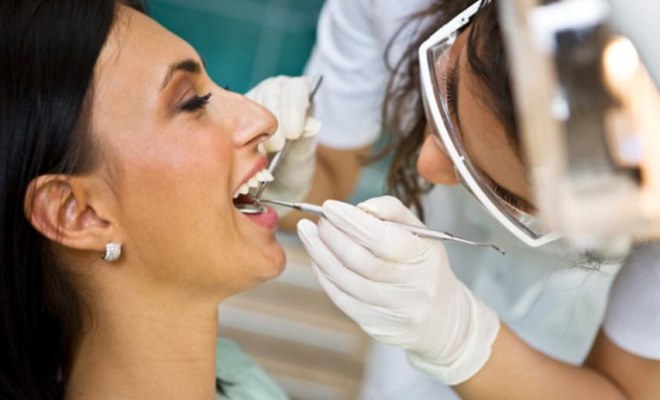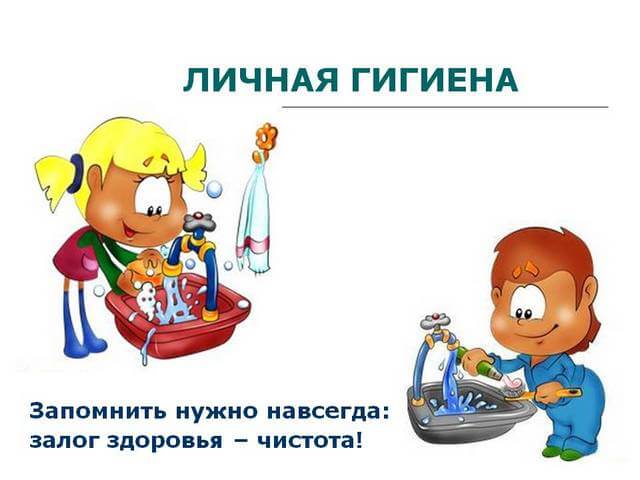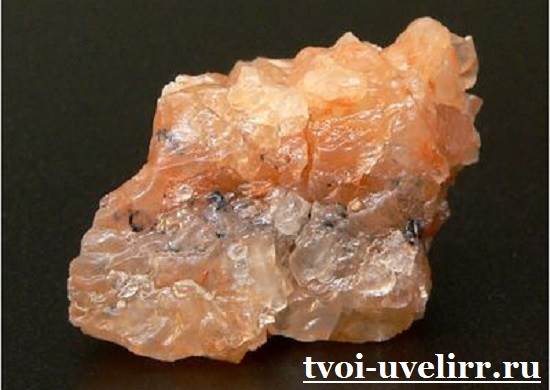Chronic bad breath, causes and solutions
Chronic bad breath causes a lot of trouble for the owner, especially if your line of work requires you to communicate a lot with people. Dental and oral problems are among the most common causes of bad breath. Symptoms and treatment methods are quite varied, but each specific case must be correctly diagnosed.
Description of the disease
As a rule, bad breath is a consequence of a number of diseases and is associated with the activity of certain pathogenic organisms. In medical terms, bad breath is halitosis. Once you understand the causes of its occurrence, you can choose the appropriate treatment.
Bad breath has a consistent medical term: halitosis. Usually a person with this disease does not even notice its presence. This is due to the fact that the olfactory receptors get used to constant odors and simply stop releasing those that seem unpleasant to an outsider.
For example, it has been officially confirmed that after some time the smell of mustiness, stuffiness, and dirt ceases to irritate and is noticeable to a person after just a few minutes. In a stuffy room, the sense of smell becomes dull. Therefore, people who have bad breath often simply do not notice it due to the reasons described above.
Reasons for appearance
Bad breath is a very delicate problem; there may be several reasons for it. Among them:
- food that has a strong smell, such as garlic, onions, etc. When processed by the body, some of the components that are not absorbed after such products are released when exhaled and have an unpleasant odor;
- Smoking causes a constant bad odor in the mouth, as tar and nicotine accumulate on the soft tissues of the oral cavity, form plaque on the teeth, resulting in bad breath. Smoking can provoke periodontal disease, as it dehydrates the oral cavity and reduces salivation. And saliva performs the function of moisturizing and disinfection; when smoking it is disrupted;
- alcohol, which also dries the oral mucosa, which provokes harmful microorganisms to multiply;
- poor nutrition, namely a lack of carbohydrates, but an excess of protein;
- soft plaque or hard dental deposits are considered the most common causes of bad breath. As a rule, this happens due to poor dental and oral hygiene, and plaque on the teeth is clearly visible. It is removed very easily and quickly, being soft. If you do not get rid of it in time, it turns into hard deposits on the teeth, forming the so-called tartar. Both dental plaque consists of microorganisms, whose growth and waste products become the culprit of bad odor;
- inflammation of the gums It is worth paying attention to bleeding, pain when brushing your teeth, swelling of the gums, and redness. All these are signs of gingivitis, which always appears in those who do not follow the rules of oral hygiene;
- periodontal diseases. In addition to bleeding, inflammation, swelling, and painful gum syndrome, the disease is characterized by tooth mobility, the flow of pus from under the gums, and the neck of the tooth becomes exposed. Periodontitis is a consequence of gingivitis that is not cured in time, in which the bone tissue around the teeth collapses, thereby the attachment of the tooth itself to the gum becomes worse and it begins to wobble. But the original cause of the disease was again poor oral hygiene;
- caries. In carious defects of the teeth, food debris gets stuck, they are populated with a large number of microbes, which causes tooth decay and, as a result, the constant release of bad breath. In this case, only dental treatment will help eliminate the cause;
- carious teeth under a crown that does not fit tightly enough to the tooth, causing the tooth to begin to rot. The problem is solved by treating or removing the affected tooth and changing the crown;
- chronic tonsillitis is another cause of the described problem, the source of which is inflamed tonsils, especially after suffering from follicular tonsillitis;
- diseases of the gastrointestinal tract, such as gastritis, peptic ulcers of the duodenum and stomach. Bad breath appears during their exacerbation;
- dysbacteriosis of the oral cavity. The other side of the coin is excessive oral hygiene, that is, the abuse of toothpaste, various rinses with antiseptics and antibiotics disrupts the natural microflora of the oral cavity. Their frequent use creates the illusion that there is no smell, but as soon as the effect of the product ends, the unpleasant odor appears again;
- mouth breathing. The habit or necessity, often due to colds and stuffy nose, to breathe through the mouth regularly dries out the mucous membrane, as a result of which deposits form on the teeth more quickly, dysbacteriosis develops and, of course, constant bad breath;
- lung disease, although this is a rather rare cause, still occurs.
Thus, the main cause of chronic bad breath can be considered poor oral hygiene and its consequences, dry mouth. With xerostomia (dryness of the oral mucosa), the protective function of saliva is weakly expressed, bacteria are destroyed very slowly, and favorable conditions are created in the mouth for their active growth and reproduction. The problem may worsen with age. And the most common dental causes of persistent bad breath are periodontal and periodontal diseases, which are worth talking about in more detail.

Between the bone bed and the human tooth is a space-filling connective tissue called periodontium. And periodontitis is an inflammatory process that occurs in it, during which the integrity of the ligaments that hold the teeth in place is lost. But the bone tissue around the tooth can also be damaged. The damage can be small, but sometimes it reaches quite large sizes, and sometimes cysts form.
Periodontitis most often occurs due to infections entering the oral cavity through other dental problems, such as caries or pulpitis, through root canals. Based on the reasons why the disease developed, the following are distinguished:
| Iatrogenic. | Medical error, insufficient tooth filling. |
| Traumatic. | Occurs due to single or repeated injury to a tooth or gum, for example, after a blow, too high a filling and other reasons, and is characterized by an acute inflammatory process. |
| Medication. | Incorrect treatment of pulpitis provokes periodontitis when potent substances enter the connective tissue. This also includes allergies to medications. |
| Infectious. | When caries appears first, then pulpitis, and as a result - periodontitis. |
Bacteria can also enter the teeth due to inflammatory processes in neighboring tissues, for example, with sinusitis. Periodontitis is also classified according to the form of its occurrence, distinguishing acute and chronic forms. Acute is also divided into serous and purulent types, and chronic into:
- granulomatous;
- granulating;
- fibrous.
Chronic periodontitis has stages of exacerbation. The acute form is characterized by an increasing pain syndrome: from weak, aching to acute, localized, continuous with purulent inflammation.
Diagnosis of bad breath
Halitosis (bad breath) is diagnosed by a dentist during a conversation with the patient, during which the doctor finds out the possible causes of its occurrence. If you are taking any medications or other drugs, following any diet, smoking or other bad habits, you must tell your dentist. You also need to talk about the circumstances under which signs of a bad odor were discovered.
After the conversation, the doctor examines the gums, teeth, salivary glands and soft tissues of the oral cavity for any abnormalities and inflammation. If the dentist determines that the cause of halitosis is a disease of any organ system, he will issue a referral to a therapist. If the cause is dental, he prescribes treatment. When the cause of bad breath is determined to be periodontal disease, a consultation with a periodontist is necessary.
If a lung infection, diabetes, kidney or liver disease is suspected, tests are ordered to help determine the exact cause and prescribe appropriate treatment.
How to get rid of bad breath
Treatment for bad breath depends on the cause. If the cause of halitosis was poor oral hygiene, it will need to be corrected. The most effective products in this case will be those that contain zinc. It neutralizes hydrogen sulfide compounds that appear as a result of the vital activity of microorganisms, which cause an unpleasant odor. This can be either toothpaste or mouthwash.
If the cause is excessive dryness of the mucous membrane in the mouth, that is, xerotomy, then you need to choose a toothpaste that contains substances that additionally moisturize the oral cavity for a long time.
Also keep in mind that most toothpastes whose manufacturers claim to eliminate bad breath mainly contain antibiotics and antiseptics. They inhibit the growth of bacteria, and mask the odor with the help of aromatic additives. As described above, long-term use of such a product can only aggravate the problem, as it will lead to even greater dryness in the mouth, reducing the ability to resist bacteria that penetrate into it. You can use such toothpastes for no more than three weeks, otherwise long-term use will lead to oral dysbiosis.
Halitosis due to periodontitis
If the cause of bad odor is periodontitis, it should be treated step by step after consulting a dentist and under his supervision. First, high-quality mechanical and medicinal treatment of the root canals is carried out. Next, calcium hydroxide is added for 7-14 days. After which general antibiotics, anti-inflammatory and other drugs are prescribed. After 7-14 days, the tooth canals and the tooth cavity are filled.
If periodontitis has developed into a chronic form, its treatment occurs in three stages:
- mechanical, namely expansion followed by cleaning until the destroyed and infected parts are completely removed;
- antiseptic, in which the affected area and dental canals are disinfected. Then procedures are carried out aimed at enhancing the restoration processes of bone tissue. To do this, a special paste is placed into the root, which relieves inflammation and has antibacterial and absorbable properties;
- For final recovery, high-quality and accurate filling of the canals is necessary.
Only if you follow all the doctor’s prescriptions can you expect a quick and effective cure for periodontitis and getting rid of bad breath.
Traditional recipes to combat bad breath
Traditional medicine is often used to combat halitosis, but you should not rely on them, because they only remove symptoms and reduce inflammation. But traditional medicine is not able to get rid of the cause and, accordingly, completely get rid of the problem.
In addition to the prescribed course of therapy or if the cause of the odor is poor oral hygiene, you can use the following remedies and recipes:
- Steam one or two teaspoons of bitter wormwood with a glass of boiling water, leave for twenty minutes, strain. Rinse your mouth with the broth four times a day;
- brew an equal amount of oak bark, St. John's wort, chamomile, nettle and birch leaves as tea and drink several times a day;
- Brew two tablespoons of peppermint in a liter of boiling water and leave for an hour. Rinse your mouth with the resulting decoction four to six times a day;
- Prepare a decoction of cumin from fifteen grams of seeds poured into a glass of boiling water, leave to brew for an hour and rinse your mouth with it.
The duration of action of such funds is not too long. As a rule, they remove the smell for one and a half to two hours, after which it appears again.
If you are bothered by persistent bad breath, especially when it is accompanied by pain, swelling, red and bleeding gums, red throat, nasal discharge and fever, seek help from your dentist immediately. Even if such symptoms are not observed, but halitosis is still present, do not delay visiting a doctor.









